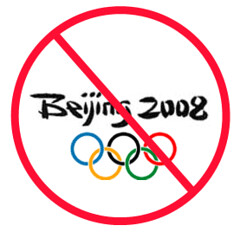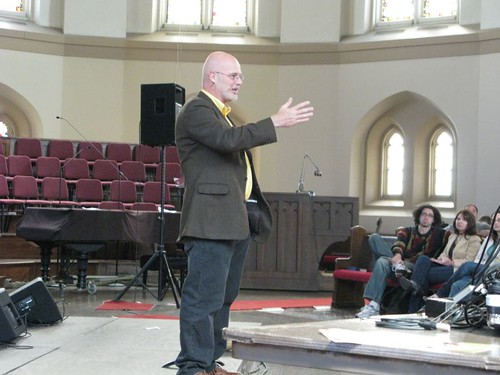The great thing about this is that it uses the system itself to work for justice. While undermining our consumer capitalist world-system may ultimately be necessary, it's not replaceable overnight, and those of us who are still going to shop for Christmas presents and still need to buy other things from time to time as well need ways that we can make a difference even within this system. So if you're going to shop, buy Fair Trade wherever and whenever possible.
BTW, for some reason as I watch this video, I keep thinking of one of the most ridiculous arguments against Fair Trade that I've ever heard, which is that Fair Trade won't work because it asks people to pay more for no tangible benefit to themselves except the "Fair Trade" label, and the warm fuzzy feelings they get from helping others. And yet we consumers choose to pay more all the time for even more ridiculous intangible benefits like designer labels, brand names, etc. and the warm, fuzzy feelings they get from being "hip" and "stylish" (even when you can buy something that looks exactly the same for a fraction of the price at the discount store down the road). If people can be induced to make purchase decisions for these sorts of silly reasons, why can't we hope that people can also be persuaded to choose Fair Trade items for much better reasons. And why not let it start with you and me this holiday season?
Labels: Fair Trade, social justice

















































 The Chicago Tribune today had an
The Chicago Tribune today had an 
 I spent this past weekend helping to coordinate the
I spent this past weekend helping to coordinate the 

 Last night at
Last night at 

